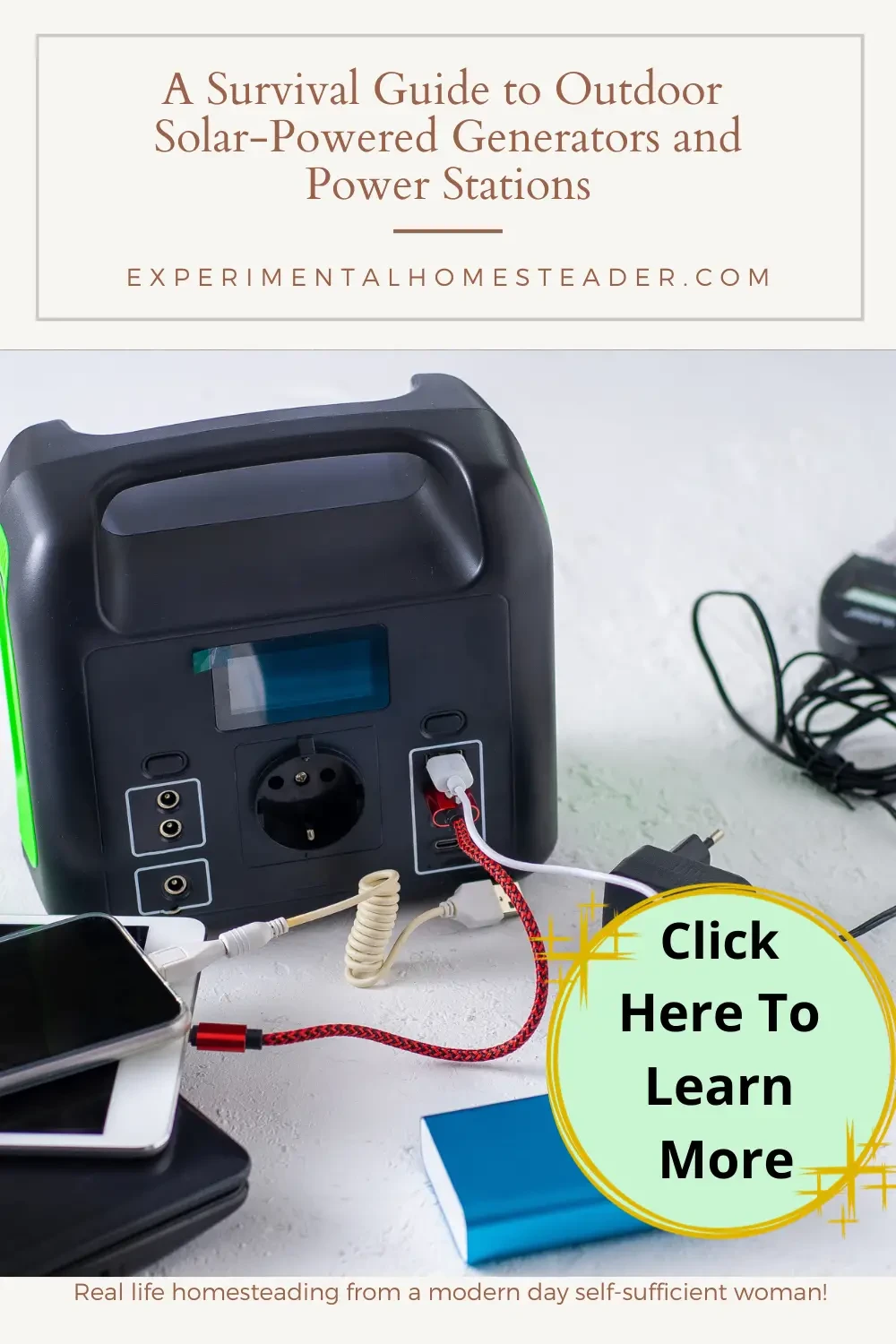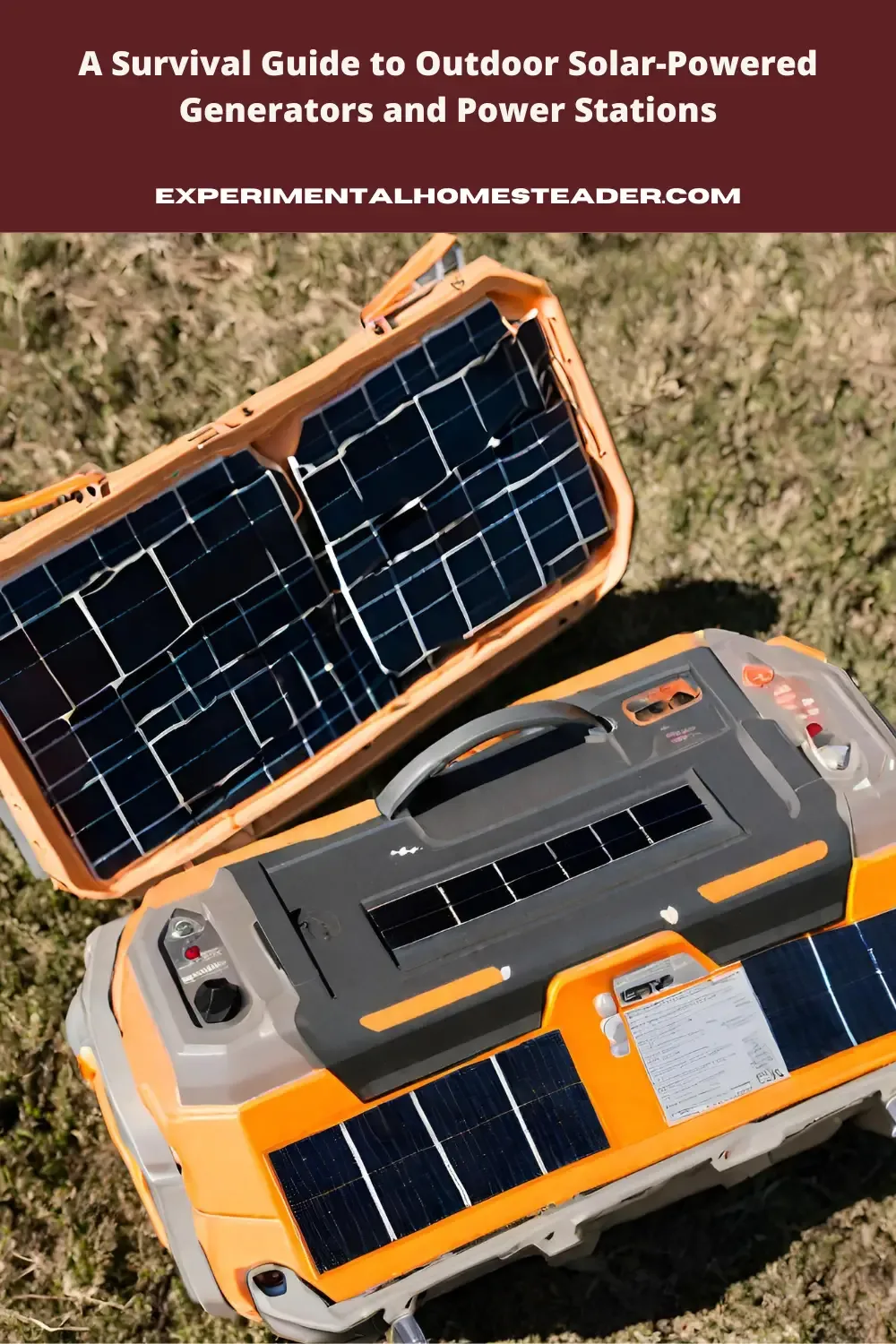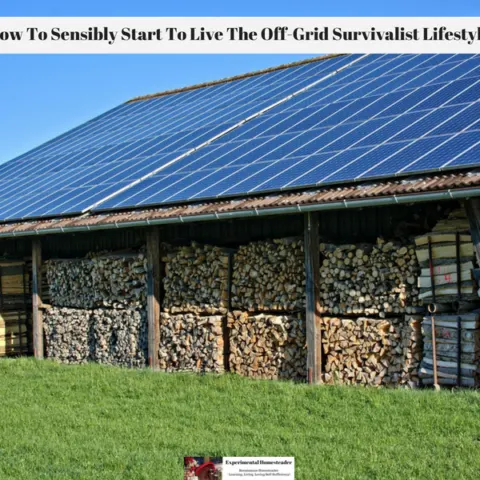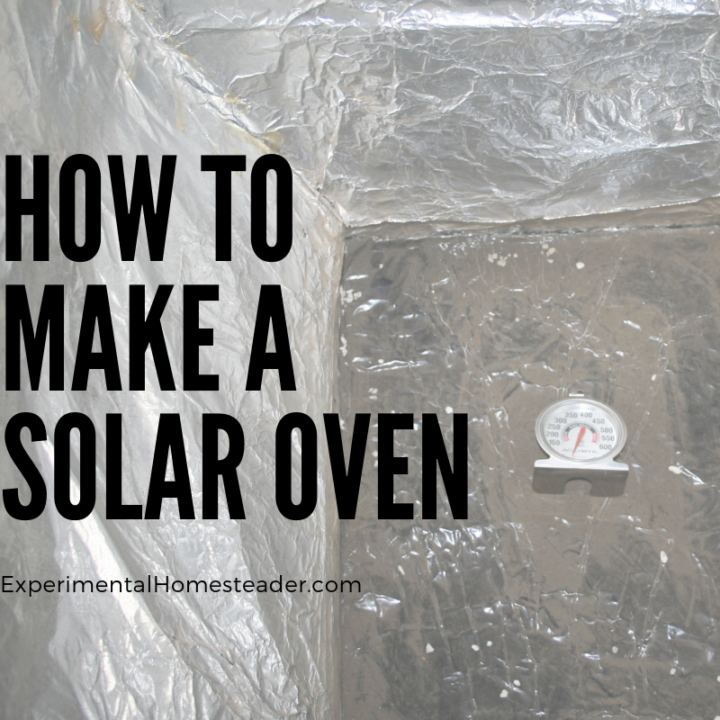Today, we're diving deep into a topic that's close to my heart – outdoor solar-powered generators and power stations.
When you're in a situation with no electricity, whether it's a short-term inconvenience or a prolonged outage, having a reliable power source can be a game-changer.
When it comes to choosing a generator, one burning question often arises: Should you go solar or opt for a gas-powered version?
Let's dive into the heart of this electrifying debate.
The Sun's Bounty: Solar Power
A solar generator harnesses the sun's radiant energy through panels.
This energy is then stashed away in a storage system until the moment you need it most.
Here's how it works:
1. Solar Panels: These magic plates gather energy from the sun, soaking it up like a sponge on a hot day.
2. The Lithium Ion Battery: This powerhouse is at the core of solar generators. It takes the sun's bounty and transforms it into electrical energy, ready to power your world.
3. Power to Your Needs: From laptops to tablets, smartphones to computers, a solar generator can juice up your essential gadgets. It's not just for the tech-savvy, though. With the right generator, it can also keep your appliances, like a trusty refrigerator, humming along.
Off the Grid Reliability
One of the standout features of solar generators is their independence.
They don't need to be tethered to the energy grid.
So, when an electrical outage casts its shadow, you're not left in the dark.
You're powered up and ready to roll with the energy of the sun.
No extra requirements, no hassles - just reliable power when you need it most.
A Lifeline in Emergencies
In times of emergency, a generator isn't just about convenience; it's about survival.
You need to keep your devices alive, stay in touch with loved ones, and stay informed about what's happening in the world.
A generator becomes your lifeline.
Now, some folks opt for gas generators, citing concerns about the limitations of solar power.
But tread carefully, as gas generators come with their own set of challenges.
Fuel Worries
In the event of a widespread and prolonged power outage, gas generators pose a unique problem.
When the gas pumps stop working, and the fuel runs dry, you're left with a powerless machine.
The Engine Equation
Gas-powered generators create electricity through their engines.
You have to kickstart them manually, and keeping an eagle eye on the fuel gauge is a must, as they thirstily consume gasoline.
Starting a gas generator can vary depending on the model.
Some come with a battery-operated system, while others evoke the familiar pull-cord action of a lawnmower.
It's a tug of war, quite literally, to get these machines up and running.
Outlets and Watts
Gas generators offer outlets for your electrical needs, but the number and capacity depend on the generator's wattage.
The more watts it can handle, the pricier it tends to be.
Gas generators are often rated by the hours they can handle per load.
This load capacity is linked to the wattage of the devices or appliances you're powering.
For instance, a generator rated at 900 watts can comfortably run a small refrigerator.
The Fuel Price Predicament
The Achilles' heel of gas-powered generators is the ongoing cost of fuel.
Gasoline doesn't come cheap, and when you're looking at larger generators capable of holding up to 18 gallons, the expense adds up.
Imagine shelling out around $54 per fill-up if gas prices hover at $3 per gallon.
You'll get approximately 10 hours of operation per fill-up.
It's clear that the choice between solar and gas-powered generators involves trade-offs.
While solar generators offer clean, renewable energy and independence from the grid, gas generators provide reliability when the sun isn't shining.
Understanding your needs and weighing these pros and cons can guide you to the right decision.
Perhaps a blend of both types can offer the perfect balance for your power needs.
Solar Generators: The Silent Guardians in Survival
When the lights go out, and the darkness stretches on, it's more than just an inconvenience; it's a potential survival scenario.
Let's explore why solar generators can be your discreet saviors.
Secrecy in Survival
In times of crisis, discretion can be your best ally.
Think about it – if everyone on your block knows you've got a generator, it's like sending an open invitation to trouble.
You're not just saying you have electricity; you're signaling that you've prepared for the worst.
In such situations, it's wise to stay as inconspicuous as possible.
Solar generators excel in this regard.
Unlike their noisy gas-powered counterparts, solar generators are known for their hushed operation.
This silence can be golden when you're aiming to keep a low profile.
What makes solar generators so quiet?
It's simple: they don't have those clunky moving parts that generate noise.
This silence isn't just a blessing for maintaining a low profile; it's also a money-saver.
With gas generators, you're not just worrying about fuel; you're also keeping an ear out for engine trouble and alternator issues.
Solar generators, on the other hand, spare you these headaches, allowing you to focus on more important matters.
Mobility in Moments of Crisis
In the midst of chaos, the need to bug out may arise.
In such cases, you definitely don't want to leave your generator behind.
This is where the portability of solar generators shines.
These compact powerhouses can be swiftly loaded into your vehicle, along with the essential supplies needed for survival.
When you reach your new sanctuary, setting up the solar generator is a breeze, ensuring you maintain access to electricity without missing a beat.
Gas generator owners, on the other hand, face an additional burden – lugging around the generator and the fuel required to keep it running.
Cost Versus Durability: A Balancing Act
While it's tempting to make decisions based solely on cost, buying a generator warrants a deeper consideration.
Let's delve into the intriguing cost-versus-durability dilemma.
The Longevity Advantage
Solar generators emerge as champions when it comes to longevity.
They're built to last, with no finicky moving parts that require replacements.
A solar generator comprises four key components:
- Solar Panels: These come in various types, including the portable and packable thin panels for quick getaways.
- Solar Battery: This vital component stores the energy collected from the sun for cloudy days and nighttime use.
- Charge Controller: An essential piece of the puzzle, it regulates the charging process.
- Inverter: This transforms solar energy into the usable AC power that keeps your appliances humming.
The Battery's Vital Role
You might wonder why a solar generator needs a battery.
This is the reservoir where energy from the panels is stored.
When the sun takes a break, the stored energy kicks in, ensuring a continuous power supply.
Choosing the right solar generator involves matching its power capacity to your anticipated usage.
Upfront Costs vs. Long-Term Savings
It's true; solar generators often come with a higher initial price tag.
This upfront expense can deter some buyers, leading them to opt for cheaper gas generators.
However, it's crucial to look beyond the initial cost and consider the long-term investment.
Solar generators may be pricier at the outset, but they recoup these costs over time due to minimal maintenance and fuel expenses.
Once you own a solar generator, the upkeep is nearly nonexistent, unlike their gas-guzzling counterparts.
Durability: A Tale of Two Generators
When gauging durability, gas and solar generators follow different paths.
Solar generators can endure for over 35 years without additional expenditures.
In contrast, gas generators hinge their lifespan on hours of use.
If you rely heavily on a gas generator, it ages quickly.
Once it hits the 25,000-hour mark, it's on the decline.
If you run it tirelessly, churning out power for 12 hours a day, every day, you'll reach this mark in just 5 to 6 years, necessitating a replacement.
So, in the end, the choice between solar and gas generators isn't just about cost; it's about the longevity of your power source in times of need.
Versatility of Solar Power Generators: More Than Meets the Eye
Solar generators prove to be reliable companions, silently supporting you when it matters most, without the constant hum of maintenance and fuel expenses.
Solar power generators are true heroes during a power outage, offering not just communication but also the ability to power your essential appliances.
Here are other ways they shine:
1. Keeping the Essentials Running
When the lights go out, it's comforting to know that solar power generators can step up to keep your crucial appliances humming. These generators are perfect for powering small, portable devices that make a big difference in your daily life.
2. Small Appliances: Your Everyday Heroes
Small appliances are the unsung heroes of our daily routines. With a solar power generator, you can continue to enjoy the comforts you might take for granted, even during an outage. Here's what you can power:
- Coffee Machine: Don't miss your morning brew. Your trusty coffee maker can still whip up that essential cup of java.
- Blender and Mixer: Keep whipping up smoothies and batters for your favorite recipes.
- Food Processor: Don't let the outage halt your meal prep. A food processor can be powered by a solar generator.
- Crockpot: Yes, you can cook a full meal in a crockpot, even during an outage.
- Toaster Oven: Enjoy casseroles and family-sized dishes with ease.
- Countertop Grill: Grilling is not just for sunny days; power your grill for delicious meals even when the power is out.
3. Staying Connected
Beyond appliances, a solar generator ensures you stay connected in times of crisis. Modern life revolves around gadgets, and you'll want to keep them up and running:
- Laptop: Whether it's for work or entertainment, a functioning laptop is a lifeline.
- Cell Phone: Stay in touch with loved ones and access emergency updates.
- Tablet: Keep your entertainment and information source ready.
- Television Set: Stay informed and entertained, even during power outages.
The Sun's Magic: How Solar Generators Work
Solar generators tap into the sun's energy through solar panels.
These panels must be correctly positioned to capture the maximum sunlight.
Once harnessed, sunlight is converted into DC power, which isn't directly usable for most appliances.
That's where the inverter comes in, transforming DC power into the AC power your appliances need.
When selecting solar panels, consider their peak condition production – this indicates how much energy they generate under ideal conditions.
A lower peak condition production can result in reduced energy output during cloudy or less sunny days.
Top 5 Solar Powered Generators and Power Stations
Choosing the right solar generator is essential, and it's wise to consider the experiences of other users.
Here are the top 5 solar powered generators that could meet your needs:
- Jackery Portable Power Station: An affordable option for budgets, usually priced under $200.
- BLUETTI AC50S 500Wh Portable Power Station: Handles larger loads, including refrigerators during outages. Portable for easy relocation.
- Generark Solar Generator For Homes: A bundled package with everything you need for quick setup.
- Jackery Solar Generator 1000: Comes with two solar panels and can power multiple appliances and devices.
- EF ECOFLOW EFDELTA 1260Wh Solar Generator: A top-of-the-line generator capable of powering numerous devices simultaneously, with flexible recharging options.
When making your choice, consider not just your energy needs but also the generator's durability, operating costs, and portability.
Lightweight options are ideal for mobility, especially if you ever need to bug out on foot.
In conclusion, solar powered generators offer numerous benefits, from clean energy to their quiet operation – a crucial feature in survival situations.
While they can be more expensive for powering an entire home, they make up for it with durability and minimal maintenance requirements compared to gas generators.
Consider having both types on hand for various survival scenarios, ensuring you're prepared for any situation life throws at you.
Q&A: Solar vs. Gas-Powered Generators
Q: What is the primary difference between solar and gas-powered generators?
A: Well, the big difference here is where they get their juice. Solar generators soak up the sun's rays, while gas generators rely on, you guessed it, gasoline or other fuels.
Q: Are solar generators as powerful as gas generators?
A: Solar generators can handle essential appliances, but gas generators usually pack more punch in terms of wattage and can tackle larger loads.
Q: How long can a solar generator provide power during an outage?
A: It varies depending on the generator's capacity and sunlight. Some last for hours, while others can keep things running for days with plenty of sunshine.
Q: Do gas generators require more maintenance than solar generators?
A: Yep, gas generators need regular TLC, including fuel top-ups and engine care. Solar generators? Well, they're pretty low-maintenance.
Q: Which type of generator is more eco-friendly?
A: Solar generators take the green crown here since they produce clean, renewable energy. Gas generators, on the other hand, emit greenhouse gases and other not-so-environmentally-friendly stuff.
Q: Can solar generators be used off-grid?
A: Absolutely! Solar generators are a great fit for off-grid living because they don't rely on a constant fuel supply or a connection to the grid.
Q: Are solar generators silent compared to gas generators?
A: You bet! Solar generators are the quiet achievers with no noisy moving parts, making them perfect for those stealthy off-grid situations.
Q: Do solar generators work at night or on cloudy days?
A: Yep, they do. Solar generators store up energy in batteries, so they can keep the lights on even when Mr. Sun decides to take a break.
Q: Can I power my entire home with a solar generator?
A: It's possible, but it usually involves a setup with plenty of solar panels. Most people use solar generators for essential appliances during power outages.
Q: What's the lifespan of a solar generator compared to a gas generator?
A: Solar generators are the marathon runners here, often lasting over 35 years. Gas generators, well, they sprint and wear out in about 5-6 years with constant use.
Q: Are there hybrid generators that combine solar and gas power?
A: Yep, some generators offer a hybrid approach, giving you the flexibility to choose between solar and gas power, depending on your needs.
Q: What's the cost difference between solar and gas generators?
A: Solar generators require a bigger upfront investment, but they usually pay off in the long run with lower operating costs. Gas generators are cheaper initially but can drain your wallet with ongoing fuel expenses.
Q: Can I take a solar generator on camping trips?
A: Absolutely! Solar generators are portable and make a great companion for camping, providing eco-friendly power even in the wild.
Q: Do I need a professional to install solar panels for a solar generator?
A: While you can go pro if you want, many solar generators come with user-friendly, plug-and-play panels, making DIY installation a breeze.
Q: Which generator type is better for emergency preparedness?
A: It depends on your needs. Solar generators offer long-term sustainability, while gas generators provide immediate power. Having both can be the ultimate preparedness solution.
Living Off Grid
How To Sensibly Start To Live The Off-Grid Survivalist Lifestyle
Learn how to sensibly start to live the off grid survivalist lifestyle you dream of and find out if it is the right choice for you before you make the move.
How To Start Living Off Grid: 17 Homestead Tips for Self-Sufficiency
17 Essential Tips for Thriving Off-Grid: From sustainable living to self-sufficiency, explore expert advice in this comprehensive guide!
Homesteading Today In The USA
Although the Homestead Act of 1862 is no longer in effect, free land is still available for those wanting to try their hand at homesteading today.
How To Make A Solar Oven
Try these easy desserts for solar cooking. As you gain experience you can learn how to cook your favorite desserts in your solar cooker.












